7 Things to Know Before You Travel to Southeast Asia
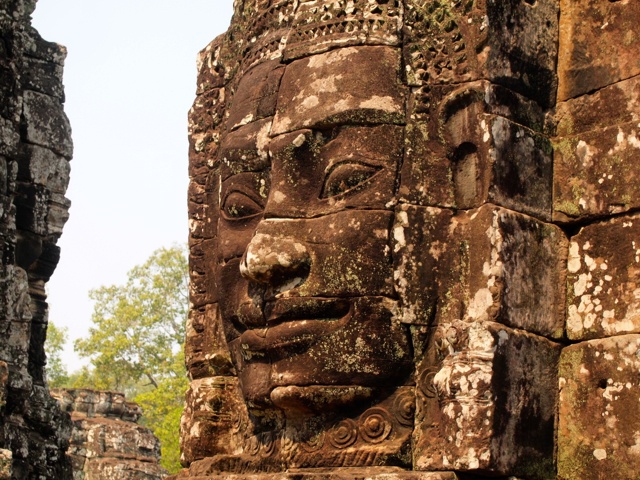
Southeast Asia has long been a popular destination for backpackers and other budget-conscious travelers who want to stretch their dollar to the fullest.
In this part of the world, everything can be had for less — meals can cost less than $1; a mattress on the floor of a guest house might cost $2 or $3; transport costs next to nothing. “Splashing out” on a luxury hotel or beach resort will only set you back about $60-$100 per night.
It's no wonder that this part of the world has become a “must” on the backpacker trail — you can travel in Thailand or Cambodia for 6 months on what you could easily blow through in 1-2 months in Europe or North America.
But, before you pack your bikini and hippie pants and head off to Southeast Asia, here are 7 things you should know about traveling in this part of the world.
Know your visa requirements
Depending on where you're from and where you're going, visa requirements differ for every country in Southeast Asia. As an American, for example, you can get a 30-day stamp in Thailand (no visa required unless you're staying longer), a visa-on-arrival in Cambodia ($20 and possibly a passport photo at airports and land borders), and a visa-on-arrival in Laos ($35). In Vietnam, however, you have to either obtain your visa beforehand, OR apply for a visa-on-arrival before you leave home.
Don't just assume you can show up with your passport at every border and just be admitted — do your research on visa fees, whether you need passport photos or not, and if there are any visas you're better off getting before you leave.
Don't be an ignorant tourist
Even though Southeast Asia is full of beaches, that doesn't mean you should pack two bikinis and nothing else. Some countries/regions in this part of the world are more modest or conservative than others. Yes, it's true that you'll see plenty of scantily-clad tourists in public from Laos to the Philippines, but that doesn't mean that you should follow suit. Be aware that it's often rude to wear shoes into buildings, and you should pretty much always make sure your shoulders and knees are covered when visiting temples.
Don't be that ignorant tourist who ignores cultural norms just because you want to show off your cute beach wardrobe.
Watch out for scams

Unfortunately, the scams you've probably heard about people falling prey to in Southeast Asia DO happen — and often. Taxi drivers will try to extort you; tuk-tuk drivers will tell you palaces or temples are closed and try to take you somewhere else where they will earn commission; even border guards can try to force you to cough up extra money.
I'm not telling you this to scare you — you should just read up on some of the most common scams before you go so that you can know what to look out for. I traveled in Southeast Asia for almost 6 weeks and didn't get scammed once because I knew what to avoid and watch out for!
A good travel insurance policy is never a bad idea, though – just in case! I recommend World Nomads for basic (and really affordable) travel insurance.
Be prepared to face poverty
Southeast Asia is still considered to be part of the developing world. And, thanks to recent tragedies (recent being within the past 50 years or so) that range from war to genocide to natural disasters, you sometimes can really tell. Roads are not always paved. Vehicles don't always run. Accommodations aren't always what you're used to. And the locals have often gone through A LOT.
Especially in rural areas, you'll see huts and floating houses and lots and lots of litter. It can be off-putting if you're not prepared for it. Unfortunately, thanks to a mixture of factors (including incredibly corrupt government officials and a lack of emphasis on education), there are few ways for people to get out of poverty in this part of the world.
Read up on some of the history before you go (you'll be astounded to learn what most Cambodians alive today went through just a few decades ago), and remember to carry your compassion with you. Get to know some of the locals, and you'll be blown away by how they've been able to survive and move on.
Avoid tourist traps and exploitation
Tourism is one of the fastest-growing industries in many Southeast Asian countries. Being along the “backpacker trail” means that many countries are seeing an influx of visitors, which usually means more scams — and more exploitation. In nations where poverty is already a large problem, be aware that you may find yourself faced with some moral dilemmas.
Don't visit orphanages or give money to begging children on the street — look for local restaurants and programs that train street kids and teach them English instead. Don't visit the “tiger temples” where they drug the animals, no matter how tempting that new Facebook profile picture sounds. And please don't ride the elephants — consider volunteering with them instead.
With so many deal-seeking tourists flocking to Southeast Asia, there's now a lot of competition when it comes to tourist attractions and activities. And many are much less ethical than others.
Get out of backpacker central
As I mentioned before, Southeast Asia is an incredibly popular destination for backpackers — cheap transport, cheap hostels, and cheap booze abound here. But many backpackers make the mistake of never leaving these cheap backpacker havens.
You can't say you've seen Bangkok if you never left Khao San Road. You can't say you explored the Thai Islands if you spent all your time partying on Koh Phangan. And a week in Sihanoukville does not a trip to Cambodia make.
I'm not saying you shouldn't go to these places in Southeast Asia — by all means, party it up and have fun. But also be aware that there are things to see beyond the overflowing hostels and bottomless buckets of booze. Go trekking into the hills of Thailand; eat as much street food as you can get your hands on; visit the temples in Angkor; take the slow boat to Laos; haggle at markets in Vietnam. Get out there and challenge yourself to step outside your comfort zone.
Keep your mind and heart open
Even though you may only be traveling to Southeast Asia for the beaches and partying, keep your eyes, mind, and heart open. There's much more to this part of the world than Full Moon parties and hippie pants. There are dense jungles, intricate temples, floating markets, towering limestone cliffs, and rich cultures with history and traditions that stretch back for hundreds of years.
Open yourself up to the beauty of this part of the world and its simple, slow pace of life, and I guarantee you'll have a trip that you'll never forget.
What other tips would you give for traveling to Southeast Asia?
PS – Check out my Packing for Southeast Asia post, too!

Amanda Williams is the award-winning blogger behind A Dangerous Business Travel Blog. She has traveled to more than 60 countries on 6 continents from her home base in Ohio, specializing in experiential and thoughtful travel through the US, Europe, and rest of the world. Amanda only shares tips based on her personal experiences and places she's actually traveled!

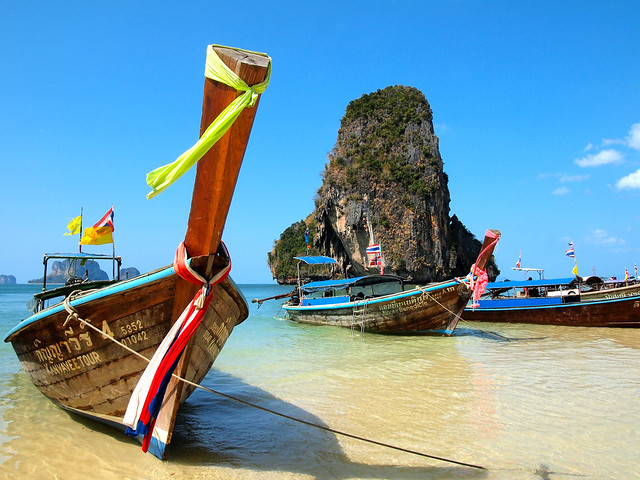
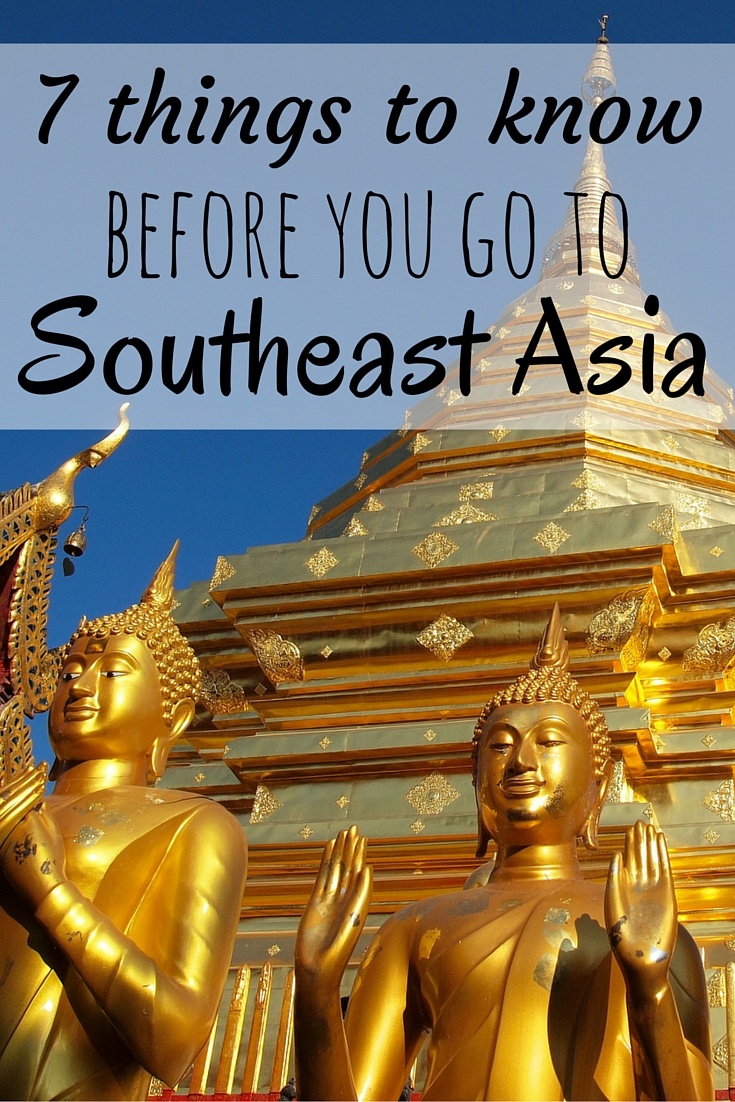
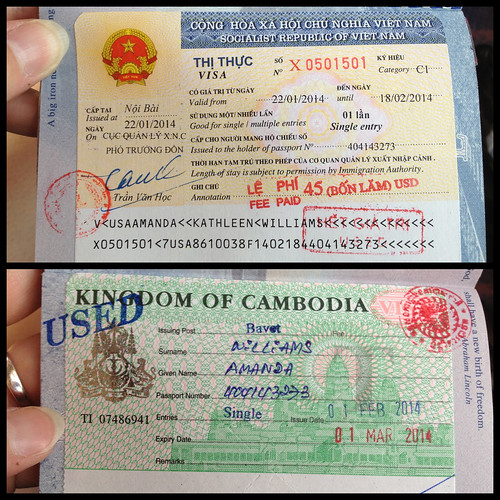
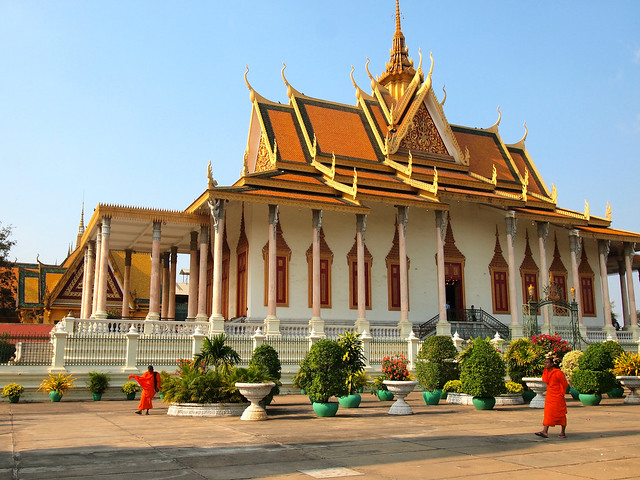
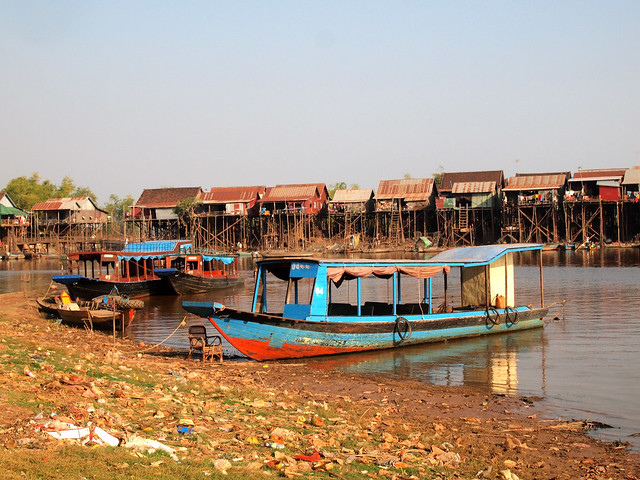
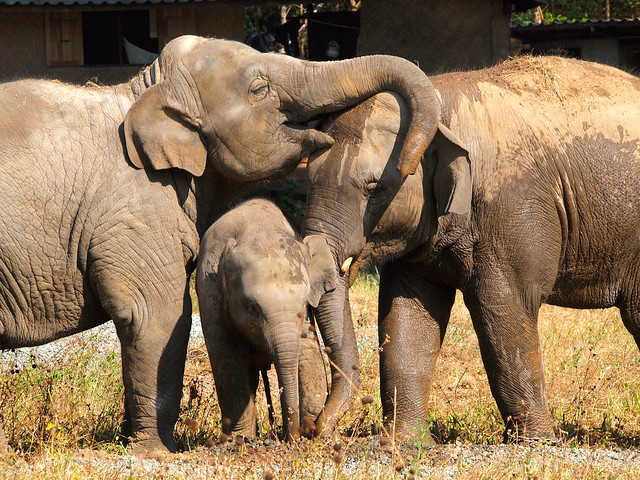
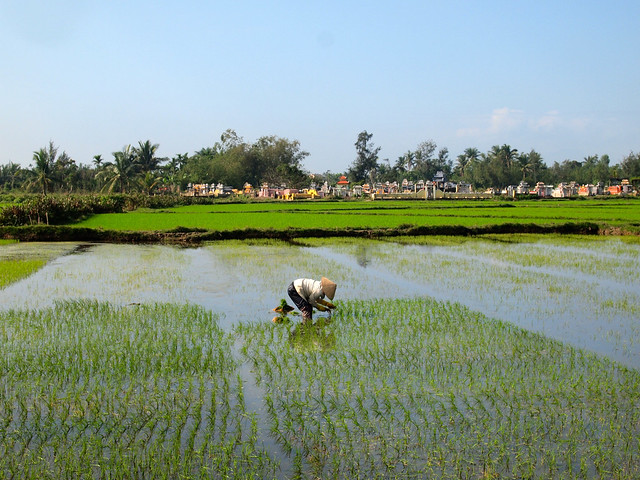
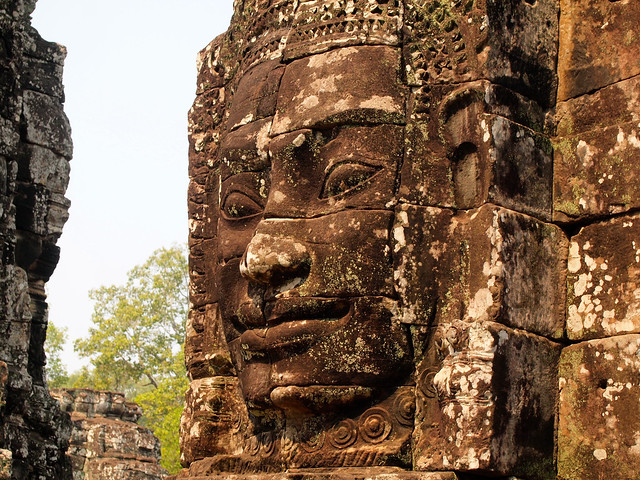









Great points. I haven’t been there before but I think it is my next holiday destination
It’s a really interesting part of the world – just be sure to keep these tips in mind! 🙂
Great post! Love the tips! We are in SE asia at this very moment and your right, the more you come out of your box, the more you actually discover not only about that country but also about yourself. What an adventure!
It’s definitely a great part of the world to learn – both about yourself AND about some cultures that are very different and unique. As cliche as it is, I think everyone should visit at some point!
Hi Amanda, just wondering, is there a website that you use to check visa requirements around the world or do you actually go on the Government website for each country? As a New Zealander, I don’t think that I need a visa for anywhere in South East Asia except Vietnam but will definitely check when I start planning my trip for next year more
As an American, I usually just go to the travel.gov site, run by the US government, whenever I want to check on visa requirements (I also usually check the CDC site to look up whether any travel vaccinations are required). But otherwise, any official immigration/tourism site would probably be fine to check in most cases!
For one of our trips to China, my mom and I got our visas from the Chinese Consulate office in DC before we left. Since we live close enough, it was a convenience.
One thing I experienced while I was on a group travel tour in Budapest and the Balkans earlier this month–expect the unexpected!
Yes, if you’re close to a consulate, then getting visas in advance is no problem! If you don’t, though, it can be a real pain.
And yup, always expect the unexpected when it comes to traveling!
Awesome tips!! We flew into Indonesia, we found out you have to have your return itinerary printed out and it was several back and forths and me shoving my phone (and return ticket info) under the little plastic window a billion times until they finally gave me a stamp. So, yeah, I’ll definitely check entry requirements next time!
Ah yeah that’s another good thing to mention! Technically I think you’re supposed to have proof of onward travel in many SEA countries (including Thailand), though I was never asked for it while I was there.
It’s good to know I can get visas at the border for Thailand and Cambodia. I’m usually an over planner when it comes to visas, especially after traveling through South America where a lot of people don’t know about them!
Yup, as an American you don’t have to apply for those visas ahead of time (though you CAN of course – some people get Cambodian visas ahead of time since the border crossings can be a bit daunting if you’re on your own). Also, if you want a Thai visa for more than the 30 days you get at the border, you’ll need to apply for that beforehand, too.
Great tips! When we arrived in Vietnam and got our visa labels put in our passports, we saw an American lady arguing because she hadn’t bothered to apply in advance. She was proper screaming and crying at the officials, but they didn’t budge. I’m not sure what happened to her in the end, but it’s cemented in my mind the importance of checking visa requirements in advance!
Yup, definitely very important. I also think a lot of people assume that they’ll be able to bribe their way across borders in this part of the world if they mess up/forget to check on visa requirements. But it’s actually a lot less common than you’d think!
Great list, some really useful information, we will be heading to South East Asia when we start our RTW trip, it’s one of those places I am most looking forward to visiting, especially Cambodia.
Knowing a lot of this beforehand will help you have a much better trip, I think! 🙂
We’re going to SE Asia from mid December starting with Thailand so have all this to look forward to. Though we found some of these in China, Russia and Mongolia, particularly the visa – FFS – getting a visa for Russia and China is a right bitch!!
And here in Kathmandu, we’re in the process of getting our Indian visas – Seb (French) only paid £30, me (UK passport) paid a whooping £90….!
Yeah, I’ve gone through the China visa process before, and I know that the process to visit Russia is pretty crazy, too. Good luck with all your visas!
Really great post! I’ve never been to Southeast Asia before, but I’m planning on spending some time there on my RTW trip. Love the part about getting out of the tourist areas. Way too many people get caught up in partying and whatnot and miss out on some of the best things a country or city has to offer. I’ve been guilty of it too.
Definitely. There are parts of Southeast Asia that are incredibly beautiful and interesting, but a lot of the party-seeking backpackers completely miss them. It’s such a shame!
Excellent points, especially regarding exploitation. It can be so tempting to hand out money to poor children or cuddle up with exotic animals for photo ops but I agree that it’s really important for tourists to think about the implications their actions have. I love Southeast Asia. It’s an amazing part of the world but there is a lot of messed up stuff that goes on here. I like that you’re encouraging travelers to be ethically aware!
There’s SO much messed up stuff that goes on over there. But, then again, there’s messed up stuff that goes on in the US too – just a different sort of messed up. 😉
But yes, I think it’s really important to try and educate people on the ethical issues of some of the things they do in Asia!
Useful tips! I wasn’t aware of so many scams. Well, I guess, they are bound to happen when so many tourists come to a place. But, we should be prepared to tackle them. Southeast Asia is charming!
I had read about a lot of the scams before going, but other than having one taxi driver in Vietnam charge me $5 more than what Lonely Planet said he should, I didn’t encounter any of them myself thankfully.
As someone who has traveled to South East Asia many times (and who is half Lao 😉 I couldn’t agree more with your list! Point number 2 is especially important I think. Just because some tourists have no idea about how to behave or dress appropriately in a foreign country doesn’t mean you should do the same! Also public displays of affection are usually rare in South East Asia so no pashing on the streets please! lol
Thanks, Pearl! I can’t tell you the number of inappropriate outfits I saw in SEA… like, we’re talking a tiny tank top and booty shorts at Angkor Wat! Ugh. Some people.
Great tips! On the food front, I’d definitely recommend people do a street food tour when they first arrive in a SE Asian country. I know some may feel intimidated and overwhelmed by the choices out there, which can put a lot of people off from trying street food – but to miss out on street food is to miss out on a MASSIVE part of life here in SE Asia. A street food tour is a great way of sampling some of the main dishes that are on offer out there without worrying about food poisoning. Your tour guide will also give you some great tips on how to choose where and what to eat. It helped us A LOT when we got to Vietnam and now we eat with street food as often as we can. We love it!
That’s a great tip, Andrea! I agree that the street food can be a bit daunting (especially if you’ve been told by people at home that it will make you sick), so a tour sounds like a great way to start.
Nice tips.
Which would be your favourite country (or maybe top3) in the area to visit?
Thanks!
I haven’t been to them all, but I think my favorite so far is Vietnam! Followed probably by Thailand.